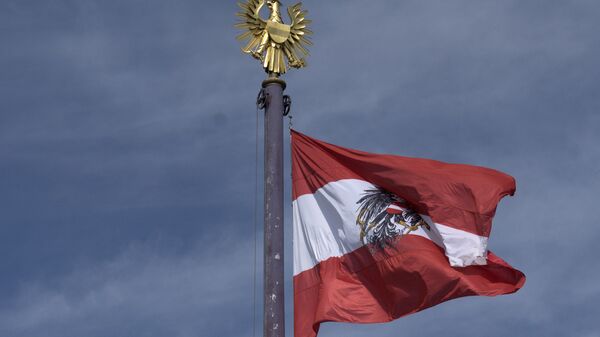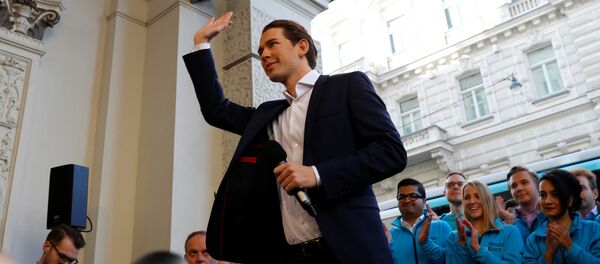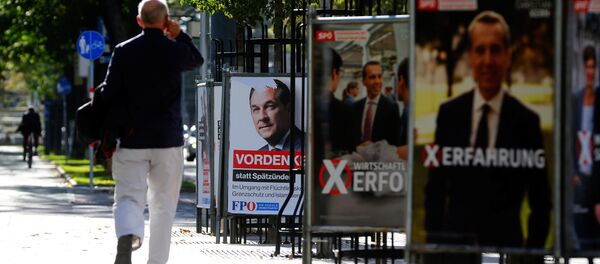Expectations that Austria's new right-of-center government will form a political union with Warsaw and Budapest are too premature, Polish commentator Adam Wielomski told Sputnik Polsha. Since the three governments seem to hold similar positions with regard to EU centralism, migration and border control, publications such as The Times of London have suggested that an alliance of this kind could emerge.
"Of course there are changes in Austria, the country has swung to the right. However, we still don't know what the new government will be since the winners of the parliamentary elections will have to go to an alliance with other parties," he explained.
"With regard to how these elections will affect European politics, then it is also too early to assess the possibility of a union between Vienna, Warsaw and Budapest. Moreover, there are fundamental differences on international policy issues between Poland and Hungary. In general, we see that the Visegrad Group doesn't operate very well at all because the members of this association have different interests and priorities and each country has its own particular view on many important problems. So I am somewhat skeptical of the statements that a new interstate union will soon appear," Wielomski said.
Lead by Sebastian Kurz, the OVP won the largest proportion of votes of any party, with 31.52%. Without an absolute majority, Kurz faces coalition talks with other parties. In second place was the Social Democratic Party (SPO) on 26.86% followed by the Freedom Party of Austria (FPO) with 26.04%.
"During their pre-election campaigning, the OVP actively used nationalist and anti-migrant slogans. But here is the big issue: did they use these slogans in order to get more votes from their competitors? If that's true, then they will forget about these ideas. Or will the OVP seek a close partner to form a new government? That's another twist. The OVP has to choose between social democrats and nationalists. If they choose the second then we will see significant changes in Austria's policies, perhaps the country will follow the path of nationalism and the rejection of migrants," Wielomski mused.
Wielomski said that the victory of the OVP is a challenge for the EU authorities in Strasbourg and Brussels. Kurz has praised his Hungarian counterpart Victor Orban, who takes a hard line on migrants and has been threatened with sanctions by Brussels for refusing to comply with migrant quotas.
Orban reacted to Kurz' victory with a letter of congratulation, declaring his hope to "strengthen cooperation between our countries as close allies according to the Christian and conservative values you consistently represent." Budapest had reacted angrily to outgoing Austrian Prime Minister Christian Kern's support for sanctions against Hungary and Poland.
Wielomski characterized the victory of right-wing parties in central Europe as "a people's revolt against the central organs of the EU, over whom these nations don't have the slightest influence."
"Everything happens behind the scenes, in the circles of political elites with the support of huge media propaganda machines. From the point of view of the common man, they create a false, alternative reality. You can draw an analogy with the movie 'Matrix' here. There, too, there is a certain force dealing with very different problems than those that concern ordinary people, and this situation is reflected in the election results in different European countries."




